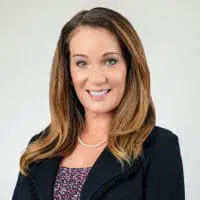Publication
Interagency Statement on Loan Modifications and Reporting for Financial Institutions Working with Customers Affected by COVID-19
By Jennifer Hadley Catero
On March 22, an interagency statement was issued by the Board of Governors of the Federal Reserve System (FRB), the Federal Deposit Insurance Corporation (FDIC), the National Credit Union Administration (NCUA), the Office of the Comptroller of the Currency (OCC), the Consumer Financial Protection Bureau (CFPB) and the State Banking Regulators. The purpose of the statement is to provide guidance to financial institutions who are working with borrowers affected by COVID-19.
The interagency statement provides the following guidance:
Working with Customers
•Financial institutions are encouraged to work prudently with borrowers who are or may be unable to meet their contractual payment obligations because of the effects of COVID-19. Loan modification programs will be viewed by the agencies as positive actions to mitigate adverse effects on borrowers arising from COVID-19.
•The agencies will not direct supervised institutions to automatically categorize all COVID-19 related loan modifications as Troubled Debt Restructurings (TDRs) and will not criticize institutions for working with borrowers.
•The agencies encourage financial institutions to mitigate risk through prudent actions consistent with safe and sound practices. Such proactive actions are in the best interest of the institutions, their borrowers and the economy.
Accounting for Loan Modifications
•In conference with the staff of the Financial Accounting Standards Board (FASB), short-term modifications made on a good faith basis in response to COVID-19 for borrowers who were current prior to any relief are not TDRs.
•This includes short-term (e.g., six months) modifications including payment deferrals, fee waivers, extensions of repayment terms or other delays in payment that are insignificant.
•Borrowers considered current are those who are fewer than 30 days past due on their contractual payments at the time a modification is implemented.
•The agencies’ examiners will exercise judgment in reviewing loan modifications, including TDRs, and will not automatically adversely risk rate credits that are affected by COVID-19, including those considered TDRs. Regardless of whether modifications result in loans that are considered TDRs or are adversely classified, agency examiners will not criticize prudent efforts to modify the terms on existing loans to affected customers.
•In addition, the FRB, the FDIC and the OCC note that efforts to work with borrowers of one-to-four family residential mortgages as described in the modification section of this document, where the loans are prudently underwritten and not past due or carried in nonaccrual status, will not result in the loans being considered restructured or modified for the purposes of their respective risk-based capital rules.
Past Due Reporting
•If a loan was not otherwise reportable as past due, financial institutions will not be expected to report such a loan as past due solely because of a COVID-19 deferral. If an institution agrees to a deferral, then the payment is not contractually past due during the period of the deferral and need not be reported as such.
Nonaccrual Status and Charge-Offs
•Institutions should refer to the applicable regulatory reporting instructions and their own internal accounting policies to determine if loans to stressed borrowers should be reported as nonaccrual assets in regulatory reports. Provided, however, that the short-term arrangements contemplated by this interagency statement should generally not be reported as nonaccrual.
Discount Window Eligibility
•Loans restructured in accordance with this statement will continue to be eligible as collateral at the FRB’s discount window based on the usual criteria.
About Snell & Wilmer
Founded in 1938, Snell & Wilmer is a full-service business law firm with more than 500 attorneys practicing in 17 locations throughout the United States and in Mexico, including Los Angeles, Orange County, Palo Alto and San Diego, California; Phoenix and Tucson, Arizona; Denver, Colorado; Washington, D.C.; Boise, Idaho; Las Vegas and Reno, Nevada; Albuquerque, New Mexico; Portland, Oregon; Dallas, Texas; Salt Lake City, Utah; Seattle, Washington; and Los Cabos, Mexico. The firm represents clients ranging from large, publicly traded corporations to small businesses, individuals and entrepreneurs. For more information, visit swlaw.com.

